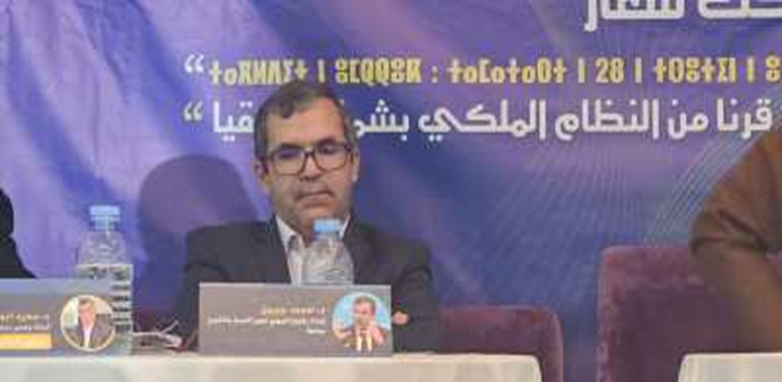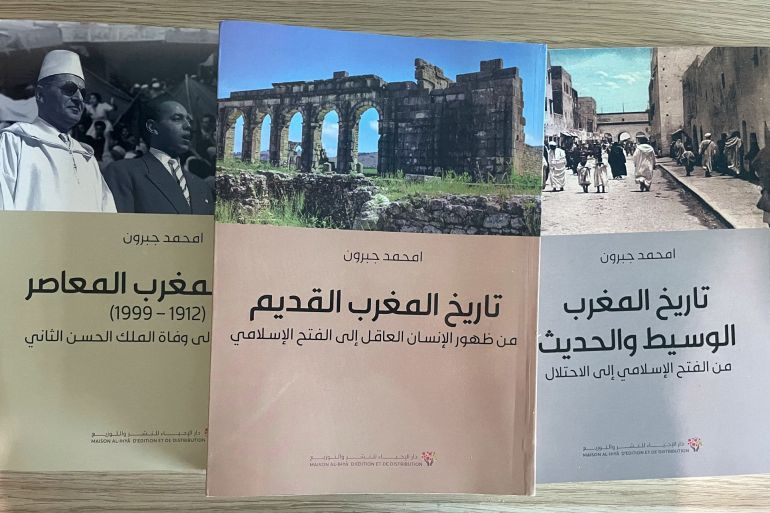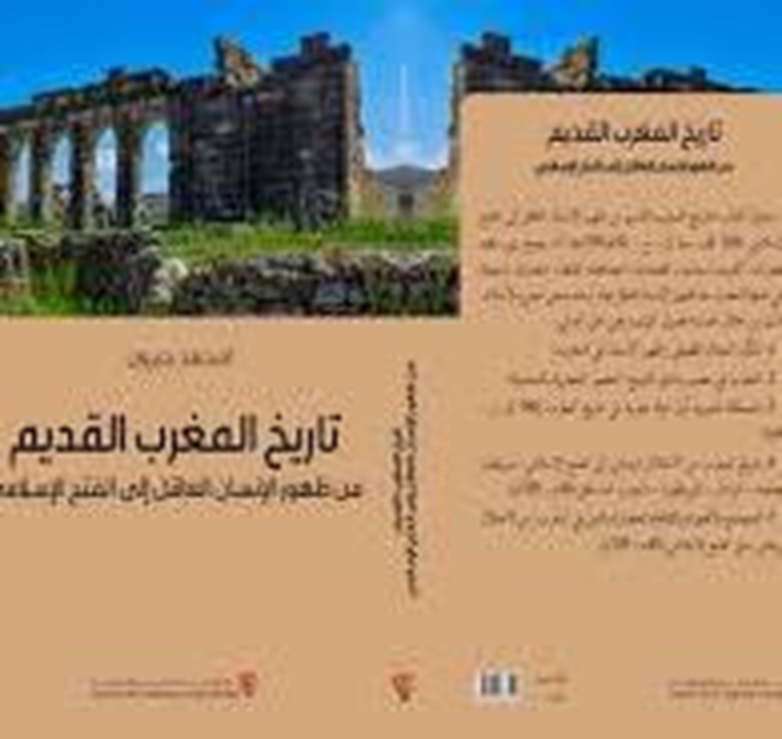Jabroun: Pre-Islamic history is important for building Moroccan identity and the monarchy is rooted in our culture and traditions

Mhamed Jabroun, a professor at the Regional Center for Education and Training Professions in Tangier, emphasized that ancient pre-Islamic history is very important in order to rebuild and define Moroccan identity, “because unfortunately when this history is ignored, we cannot understand ourselves correctly,” stressing that the monarchy “ Rooted in our culture and traditions, the first political entity that was formed in Morocco and known in history was a kingdom, and the first kingdom in the history of Morocco was the Moorish Kingdom, which dates back to 500 years BC.”

Historian Jabroun explained during his intervention at the symposium “The Kingdom of Morocco: An Icon for 28 Centuries of the Monarchy in North Africa,” organized on the evening of Friday, January 12, 2024, within the opening of the activities of the tenth session of the “Basheikh” Festival in the city of Tangier, that the Mauritanian Kingdom “had its kings.” And its foreign relations, its political institutions, and its Moorish language, which, unfortunately, has not yet been deciphered, and it had its army, which at one stage helped Carthage, and at another stage had a relationship with the Romans,” he added, adding that the Moorish Kingdom was “the last kingdom in North Africa to fall to The hand of the Romans in the year 40 AD, opposite the Kingdom of Numidia.

In the context of his intervention, researcher Jabroun criticized “the absence of the Mauritanian kingdom in school textbooks,” considering it “disgraceful,” as “we cannot provide synthetic material for Moroccan youth on the first Moroccan kingdom,” the speaker adds, adding, “the Mauritania was not as some imagine, Bedouins and groups.” And a tribal federation. Rather, it had a group of cities that we attribute to the Romans later, and they were originally Moroccan Maurya, such as Tangiers, on the ruins of which Roman Tangiers, Lilli, and Lixus were built. It is true that they are cities that flourished in the Roman period, but their origin was Maurya, or traces of Maurya were found in them,” the historian states.

Unfortunately, the author of the book “The History of Ancient Morocco” says: “Many people believe that Morocco was under Roman rule after the fall of the Roman Kingdom, and this is just an illusion and not true, because the Romans, in the best circumstances in which they exercised their powers and enjoyed power, did not exceed a border line from Salé to Volubilis and elsewhere.” The rest is independent,” and he added, “The countryside was not subject to Roman rule, and there is no evidence of their presence.”
After reviewing the relationship of culture with the state before the emergence of the Qatari and modern state, which was not “a political issue for states,” historian Amhamed Jabroun pointed out that “after independence, by virtue of the national movement, culture became an Arab cultural policy primarily for many reasons. However, the Moroccan monarchy quickly “I noticed, Madam, that there is a cultural policy produced by the state. It must produce a cultural policy that respects all dimensions of Moroccan identity, and this is what a number of Amazigh activists have fought for and drawn the attention of the state over three decades.”
Source : websites

